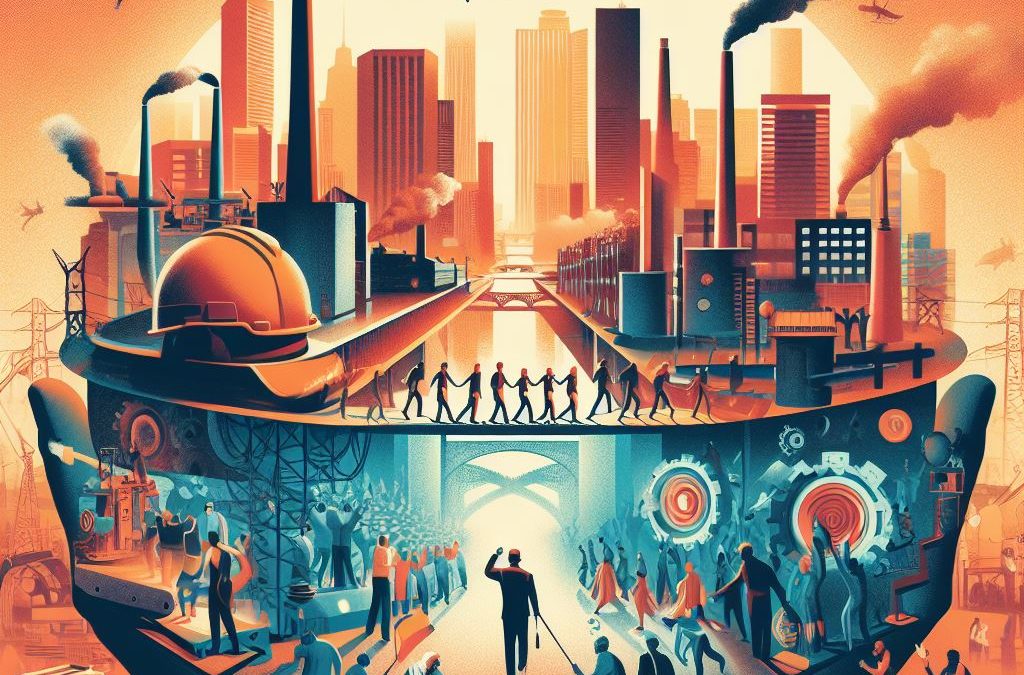The clothing industry in Bangladesh, particularly the Ready-Made Garment (RMG) sector, has seen significant transformations over the years. Despite improvements, many challenges still persist. This article will delve into the evolving landscape of this crucial industry, considering both local and global perspectives.
ILO’s Crucial Role in Improving RMG Sector
The International Labour Organization (ILO) plays a pivotal role in the enhancement of Bangladesh’s RMG sector. Working collaboratively with various departments and offices, the ILO has conducted extensive research and made publications that monitor progress and outline the challenges in improving workplace safety and labor rights.
Impact of Major Interventions
The Accord Alliance and National Initiative have been tracking and implementing improvements in several factories. By July 2016, these organizations had developed Corrective Action Plans (CAPs) for 2,496 factories and Detailed Engineering Assessments (DEAs) for 1,239 factories.
Government Reforms Following Tragedies
Tragic incidents at Rana Plaza and Tazreen sparked the Government of Bangladesh to instigate major reform. The reformation aimed to make the inspection system more credible, efficient, and accountable, enhancing the capacity and confidence of inspectors. Additionally, the Fire Service and Civil Defence Department (FSCD) was strengthened with comprehensive training provided by the ILO and the US Department of Labor.
Transformations Witnessed by Leading RMG Exporters
SQ Group, a leading RMG exporter, in partnership with Better Work Bangladesh, observed a shift in attitudes towards compliance issues at the factory level. This shift led to the creation of self-directed action plans for resolving these issues, contributing to safer, cleaner, and more equitable working environments.
Current Challenges in Workers’ Rights and Trade Unions
Despite safety enhancements, progress in workers’ rights remains a significant challenge. There’s a need for swifter registration of trade unions and promotion of social dialogue. Factory owners often resist the formation of unions for fear of decreased productivity. However, fostering a better understanding of the positive role of trade unions and encouraging constructive cooperation can help overcome this hurdle.
ILO’s New Initiative and The Remediation Coordination Cell (RCC)
To address these challenges, the ILO launched a new social dialogue initiative funded by Sweden and Denmark. This initiative will work on developing dialogue mechanisms and relations between employers and workers, and will transform conciliation and arbitration mechanisms into more transparent, credible, and trusted systems.
Additionally, the ILO plans to establish the Remediation Coordination Cell (RCC), in collaboration with the government and other stakeholders. The RCC will oversee the remediation process for some 1,500 non Accord and Alliance factories.
Contributions of Other Organizations and the Sustainability Compact
Numerous organizations have contributed to enhancing safety in the sector. The ILO’s US Department of Labor-funded project, for instance, has worked on enhancing the regulatory framework and fire safety. The German development agency GIZ has provided training and resources to the labor inspectorate and the fire service.
Furthermore, the Sustainability Compact, launched by the European Union and the governments of Bangladesh and the USA, aims to promote continuous improvements in labor rights and factory safety.
The Impact of Unfair Practices and COVID-19
International fashion brands have been implicated in practices that are seen as unfair, such as paying suppliers less than the cost of production. These practices have contributed to worker turnover, job losses, and depressed wages. The COVID-19 pandemic added another layer of challenges, with many factories struggling to pay the legal minimum wage due to canceled orders, refused payments, and delayed payments for goods.
The Response of Bangladesh’s Garment Industry to Challenges
In response to these challenges, Bangladesh’s garment industry has taken substantial steps towards fair practices and improved safety standards. Now, over 80% of the nation’s 3,200 RMG factories comply with international safety and security standards.
Remaining Challenges and the International Perspective
Despite advancements, the sector continues to face significant challenges. The number of government-appointed inspectors for the over 5,000 active industrial boilers in Bangladesh remains insufficient, indicating a need for immediate action. Low wages, violations of trade union rights, and intimidation also remain significant issues.
Conclusion: The Path Forward
While the garment industry in Bangladesh has seen some improvements in labor rights and working conditions, there is consensus that more work is needed. The sector continues to grapple with the challenges of unfair practices, worker exploitation, and safety issues. However, with international cooperation and a commitment to continuous improvement, there is hope that Bangladesh’s clothing industry can move towards a more sustainable and equitable future.
Join us in our commitment to ethical sourcing. With Brandex Sourcing, you can have peace of mind knowing that our products are made with respect for people and the planet.
You might also be interested in our article about Child Labor in Bangladesh’s Garment Factories.
Sources:
https://www.ilo.org/wcmsp5/groups/public/—asia/—ro-bangkok/—ilo-dhaka/documents/publication/wcms_474048.pdf
https://www.ilo.org/wcmsp5/groups/public/—asia/—ro-bangkok/—ilo-dhaka/documents/publication/wcms_317816.pdf
https://www.dw.com/en/has-bangladesh-made-progress-on-the-rights-of-garment-workers/a-52277347
https://www.aljazeera.com/news/2023/1/11/fashion-brands-paid-less-than-production-cost-to-bangladesh-firms
https://www.equaltimes.org/ten-years-on-from-rana-plaza-how?lang=en

